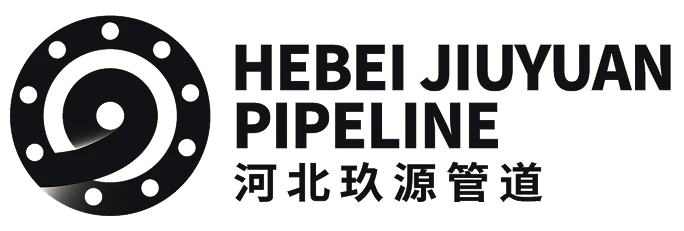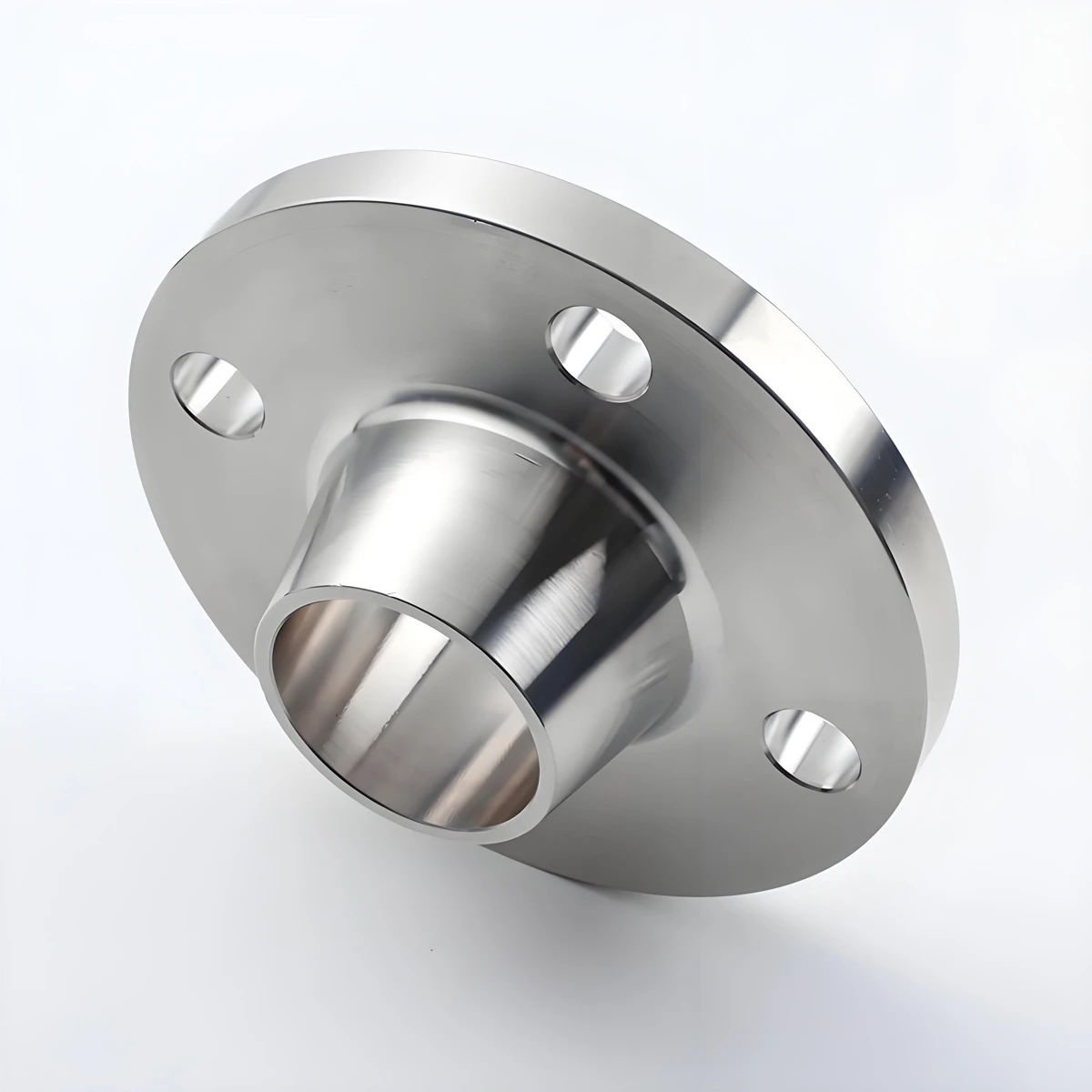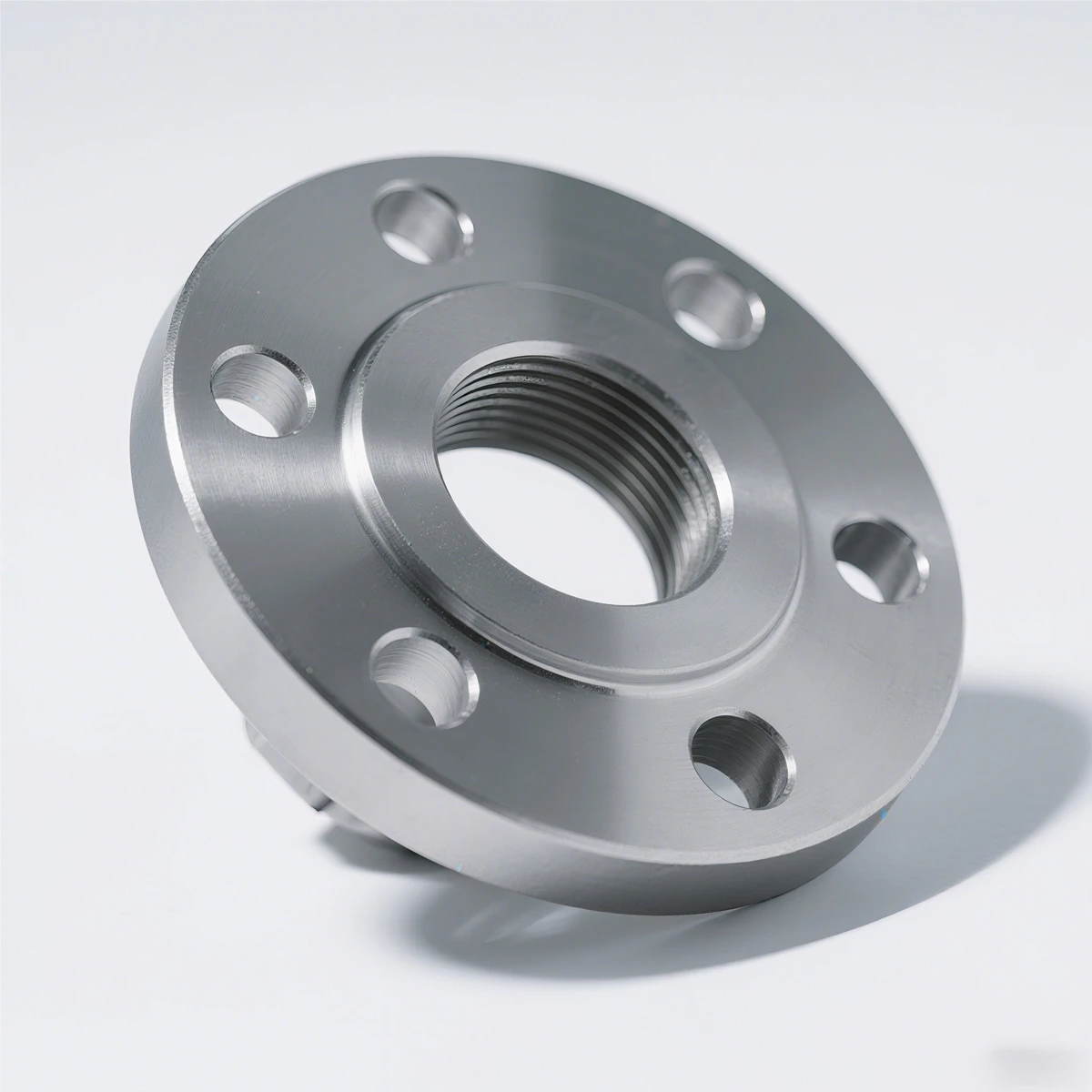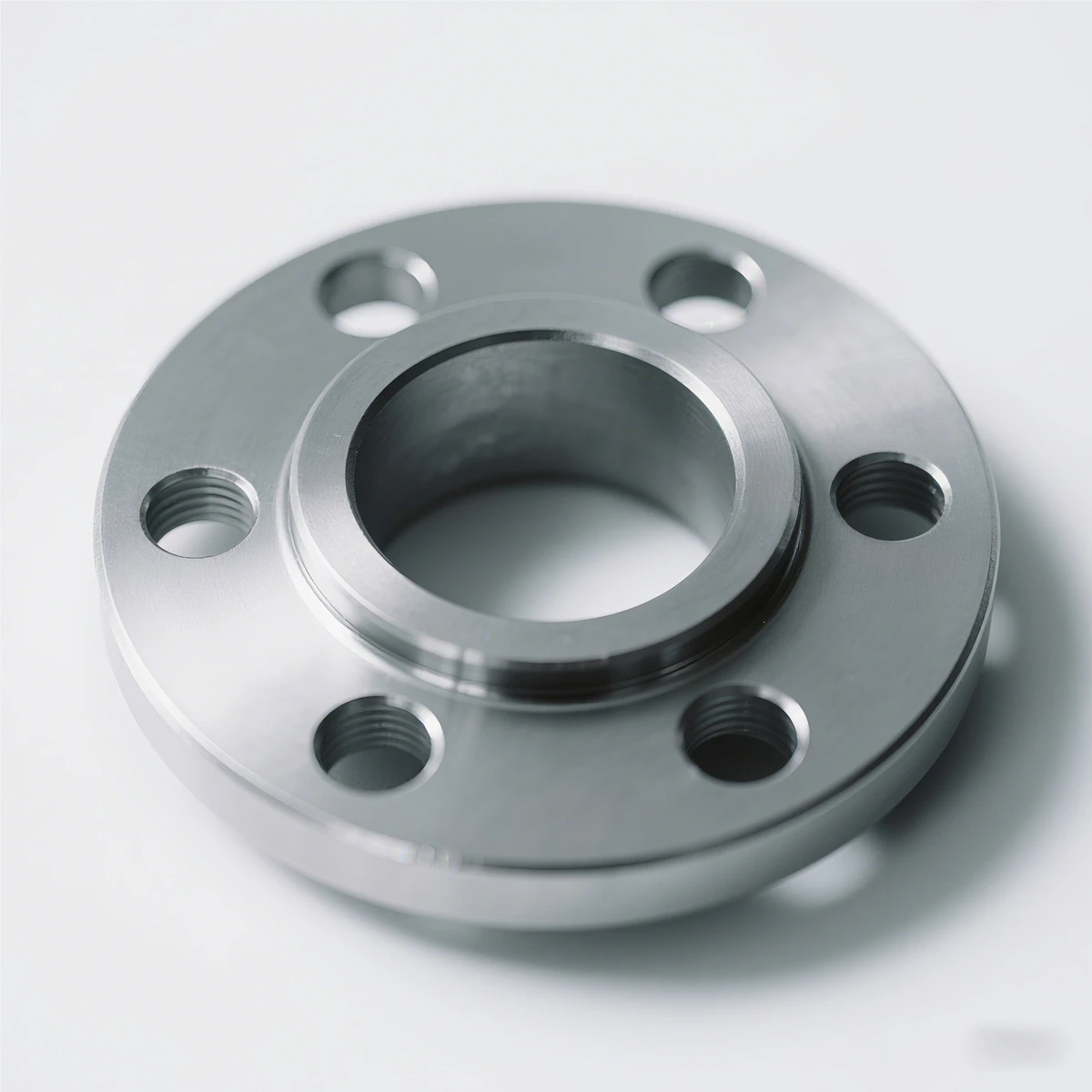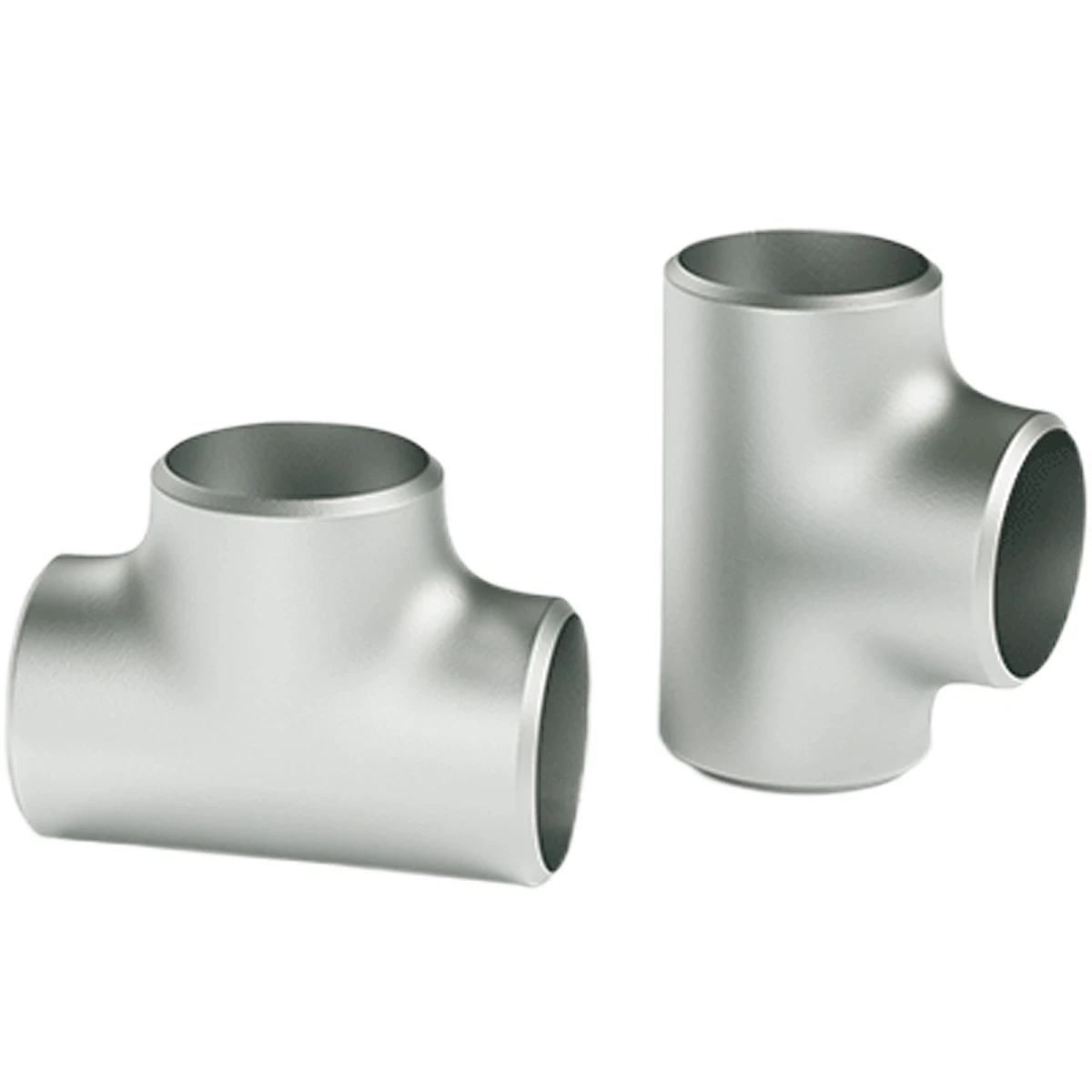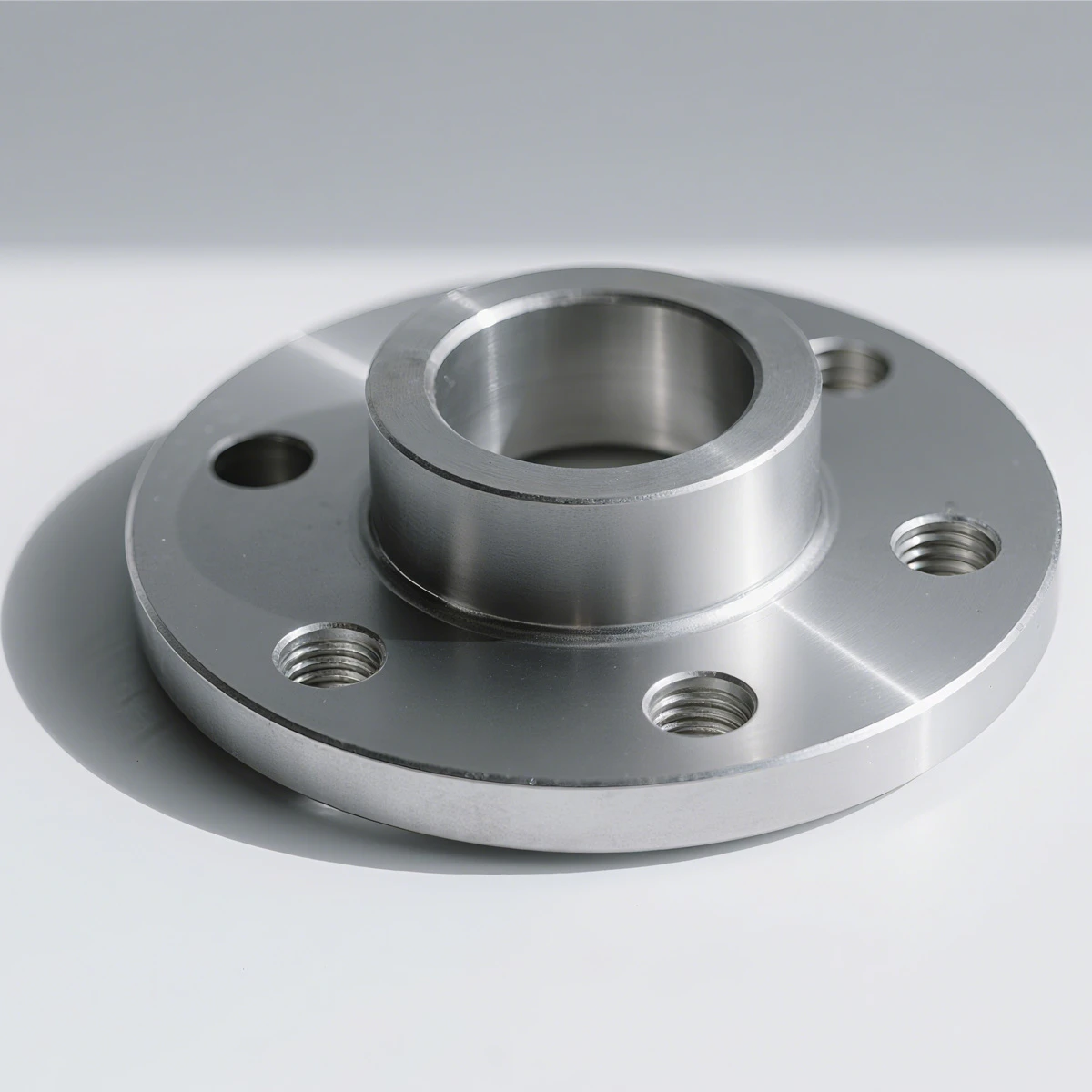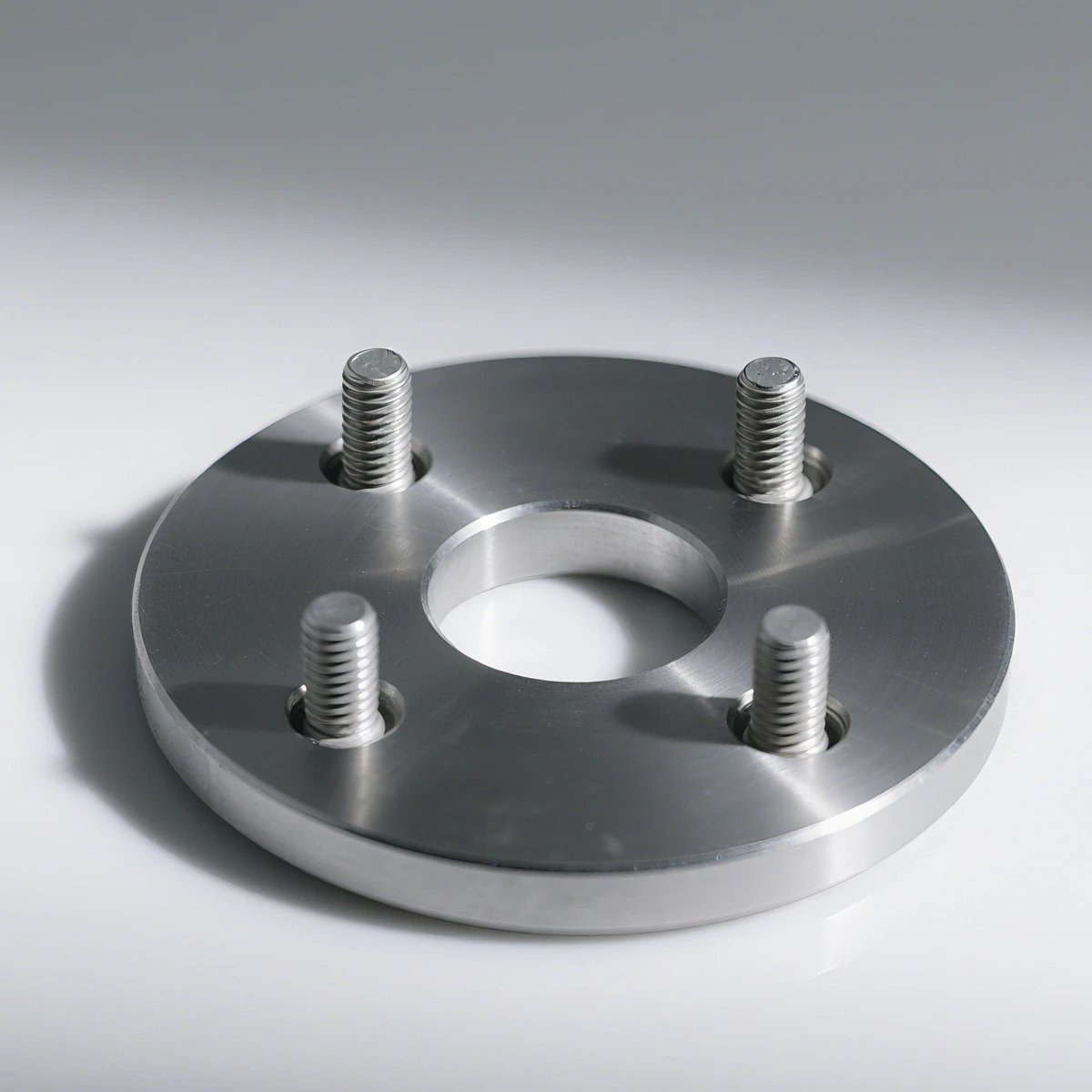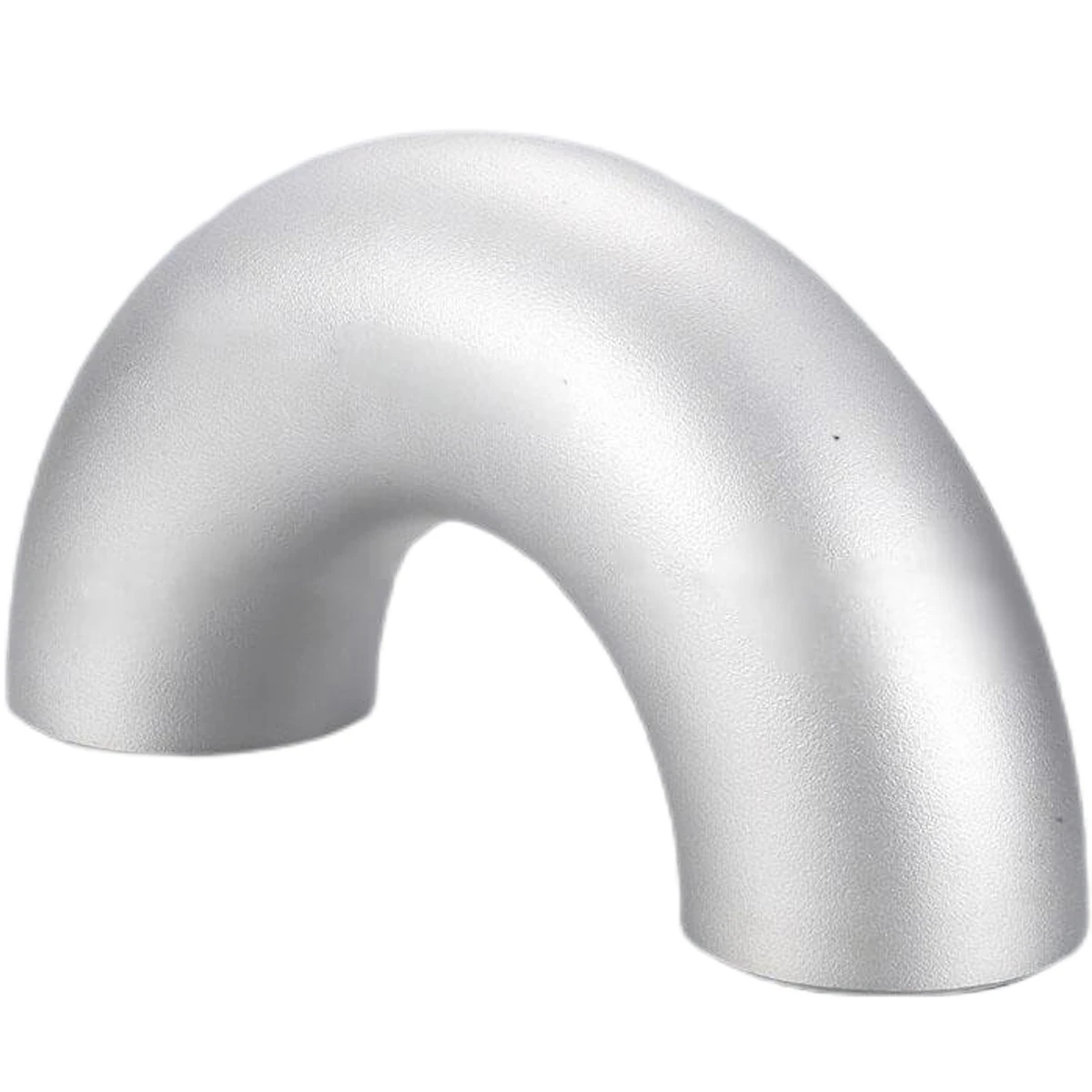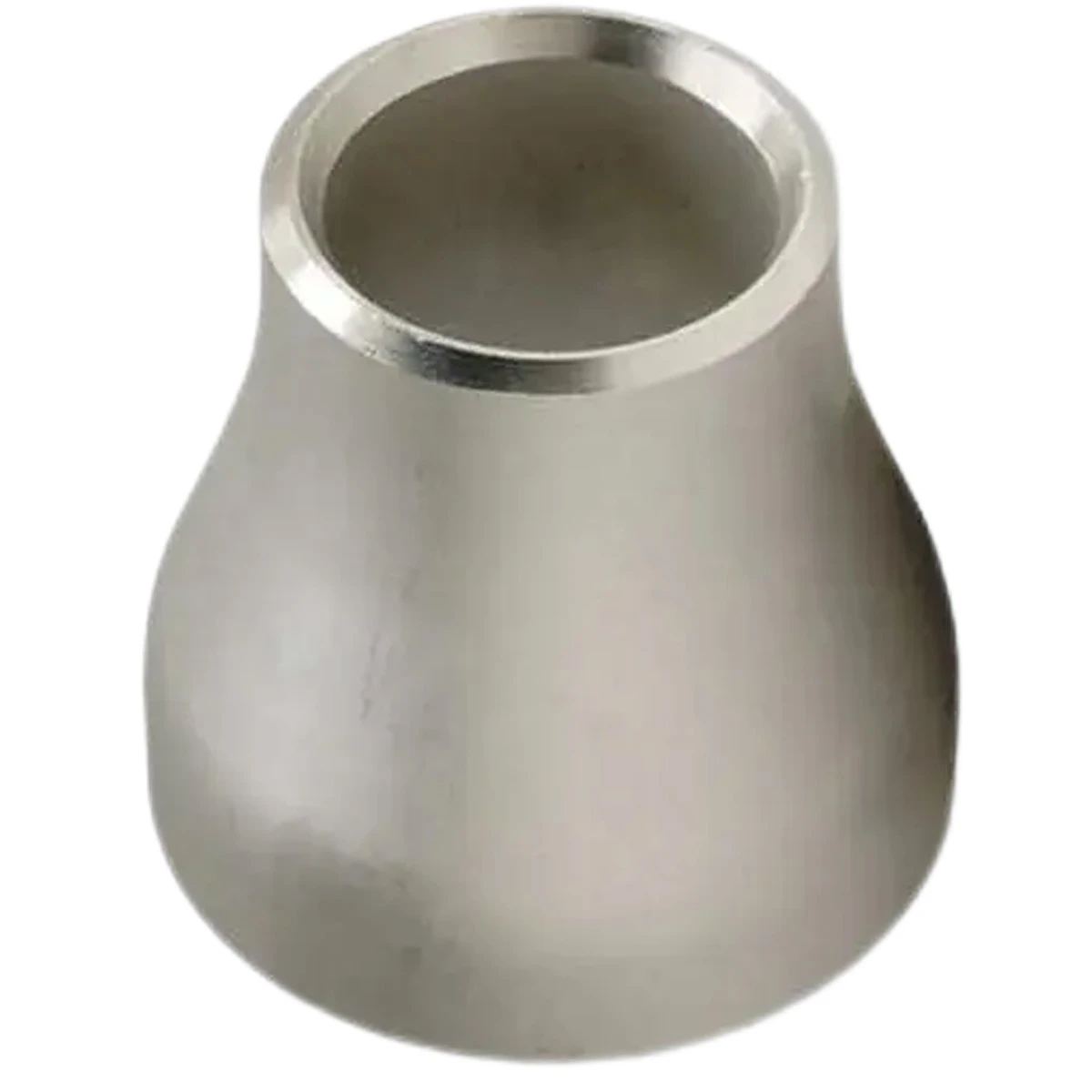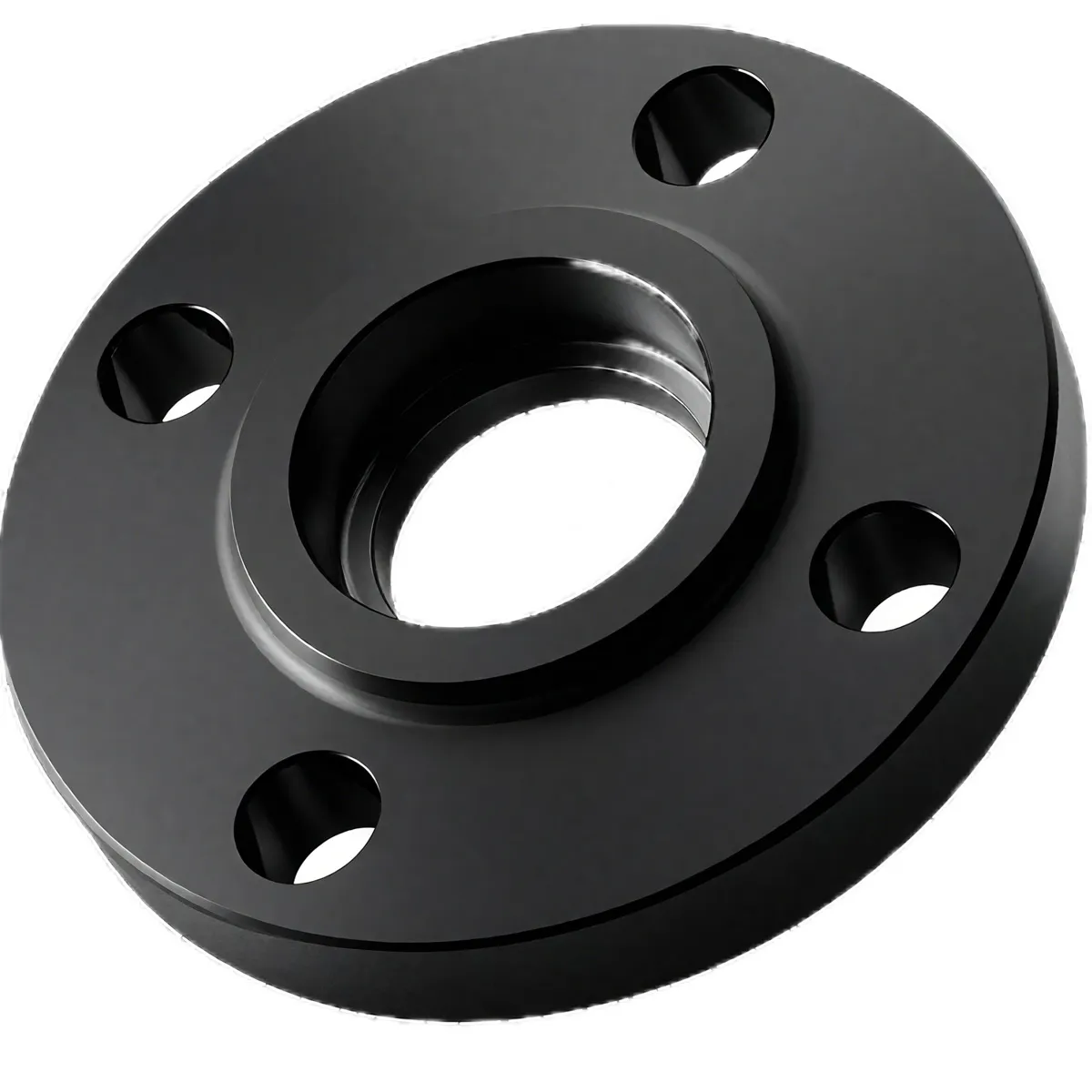
The Indispensable Role of Socket Weld Flanges in Modern Industrial Pipelines
In the complex world of industrial piping systems, the integrity and reliability of connections are paramount. Among the myriad of available joining solutions, the socket weld flange stands out as a critical component, especially for smaller pipe sizes where leak prevention and structural strength are crucial. These flanges are specifically designed to be inserted into a recessed area, or "socket," on the flange, followed by a fillet weld around the hub of the flange to secure the pipe. This unique design minimizes internal crevice corrosion and provides excellent resistance to fatigue and stress corrosion cracking, making them ideal for high-pressure, high-temperature, and corrosive environments. The global industrial sector continues to demand more robust and reliable piping solutions, driven by advancements in material science, stricter safety regulations, and the need for enhanced operational efficiency. As industries such as oil and gas, petrochemical, power generation, and chemical processing expand, the reliance on high-performance components like the socket weld flange only intensifies. Current trends indicate a strong move towards optimizing material selection for specific challenging conditions, incorporating advanced non-destructive testing (NDT) methodologies for quality assurance, and integrating digital fabrication techniques to ensure precision and reduce manufacturing lead times. This evolution underscores the importance of understanding the technical intricacies and application nuances of these vital piping elements.

The increasing complexity of industrial infrastructure projects, from liquefied natural gas (LNG) terminals to advanced chemical synthesis plants, necessitates pipe connections that can withstand extreme operational parameters. A properly installed socket weld flange offers superior joint strength compared to threaded connections and is less prone to distortion than butt-weld flanges in smaller sizes. Its design inherently reduces the risk of joint failure under thermal cycling or mechanical stress, contributing significantly to overall system safety and longevity. Furthermore, the compact nature of the socket flange allows for installation in confined spaces, a common challenge in dense industrial facilities. The market is also seeing a greater emphasis on sustainability, with manufacturers exploring environmentally friendly production processes and materials that offer extended service life, thereby reducing the need for frequent replacements and minimizing waste. This shift towards more sustainable and resilient industrial components is a key driver for innovation within the flange manufacturing sector, constantly pushing for higher quality, better performance, and more efficient installation methods to meet the rigorous demands of modern industries.
Technical Parameters and Material Specifications for Socket Weld Flanges
The performance of a socket weld flange is fundamentally determined by its adherence to stringent technical parameters and the selection of appropriate materials. Key specifications typically follow international standards such as ANSI/ASME B16.5 for pipe flanges and flanged fittings, and ASME B16.47 for large diameter steel flanges, ensuring interchangeability and reliability across various global projects. These standards define critical dimensions including nominal pipe size (NPS), pressure classes (e.g., Class 150, 300, 600, 1500, 2500), face types (raised face, flat face), and bore dimensions for precise pipe insertion. Material selection is equally vital, dictated by the process fluid, temperature, pressure, and corrosive environment. Common materials include carbon steel (ASTM A105, A350 LF2 for low temperature), stainless steel (ASTM A182 F304/304L, F316/316L, F321, F347 for corrosion resistance), alloy steel (ASTM A182 F11, F22, F91 for high temperature and pressure applications), and specialized alloys like Duplex (F51, F53, F55) or Inconel for extremely harsh conditions. Each material type offers specific mechanical properties, such as tensile strength, yield strength, and impact resistance, which are critical for ensuring the long-term integrity of the pipeline system.
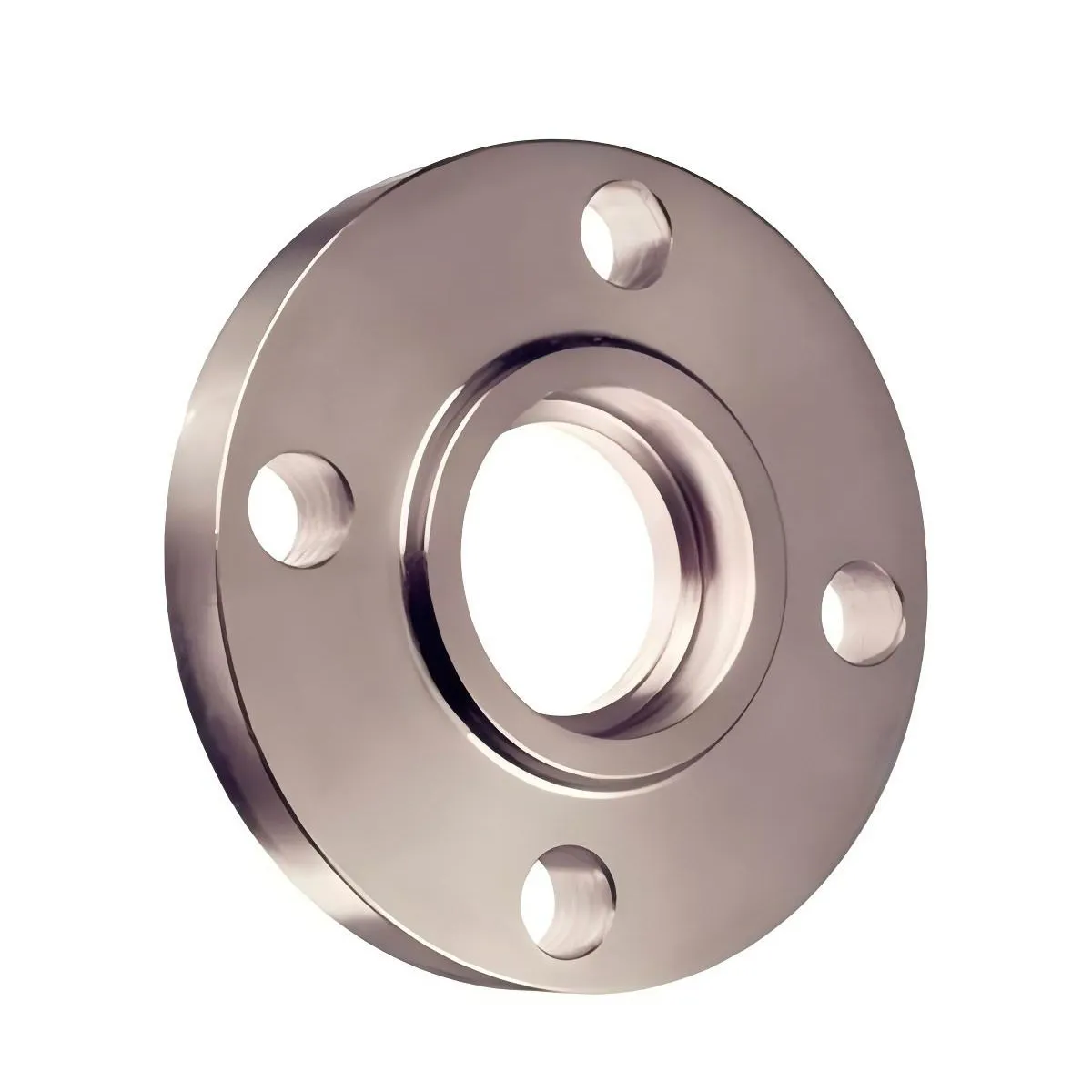
Understanding these specifications is crucial for engineers and procurement specialists when designing or upgrading piping networks. For instance, in applications involving high-temperature steam or corrosive chemicals, opting for a 316L stainless steel socket flange would be preferable over standard carbon steel due to its superior corrosion resistance and elevated temperature strength. The pressure class rating indicates the maximum allowable pressure at a given temperature, a direct correlation to the flange's design and material thickness. Below is a simplified table outlining typical parameters for a standard socket weld flange, demonstrating the range of choices available to meet diverse industrial requirements. This table highlights key variables that influence performance and compatibility, underscoring the necessity of precise matching to operational demands.
| Parameter | Description | Common Values/Standards |
|---|---|---|
| Nominal Pipe Size (NPS) | Diameter of the pipe the flange fits. | 1/2" to 4" (most common for SW), up to 24" (for larger applications) |
| Pressure Class | Maximum allowable pressure at specific temperatures. | Class 150, 300, 600, 900, 1500, 2500 (ANSI/ASME B16.5) |
| Material | Composition determining strength, corrosion, and temp resistance. | ASTM A105, A350 LF2, A182 F304/304L, F316/316L, F11, F22, F91 |
| Face Type | The sealing surface of the flange. | Raised Face (RF), Flat Face (FF), Ring Type Joint (RTJ) |
| Manufacturing Standard | Governing codes for design, dimensions, and testing. | ANSI/ASME B16.5, B16.47, MSS SP-44, API 6A |
| Welding Standard | Guidelines for the welding process (socket flange welding). | ASME Boiler and Pressure Vessel Code Section IX, AWS D1.1 |
These parameters ensure that each socket weld flange meets the exact performance requirements of its intended application, guaranteeing safe and efficient operation. Compliance with these standards is not merely a formality but a critical aspect of engineering design that directly impacts system reliability and safety. Manufacturers must adhere to rigorous quality control protocols to ensure that every flange produced lives up to these exacting specifications, thereby maintaining the trust and confidence of clients in high-stakes industries.
The Meticulous Manufacturing Process of Socket Weld Flanges
The production of a high-quality socket weld flange is a sophisticated process that combines advanced metallurgical techniques with precision engineering. It typically begins with raw material sourcing, where alloys such as carbon steel, stainless steel, or specialty alloys are selected based on the final product's application and required performance characteristics. These materials undergo rigorous chemical analysis and mechanical testing to confirm they meet specific ASTM or equivalent standards. The primary forming process for flanges is often forging, where billets of metal are heated to forging temperature and then shaped under immense pressure using hammers or presses. This process refines the grain structure of the metal, enhancing its strength, toughness, and fatigue resistance, which are critical properties for components exposed to high-pressure and dynamic loads in a piping system. Alternatively, for certain specifications or materials, flanges can be manufactured through casting, where molten metal is poured into molds, followed by heat treatment to achieve desired mechanical properties.
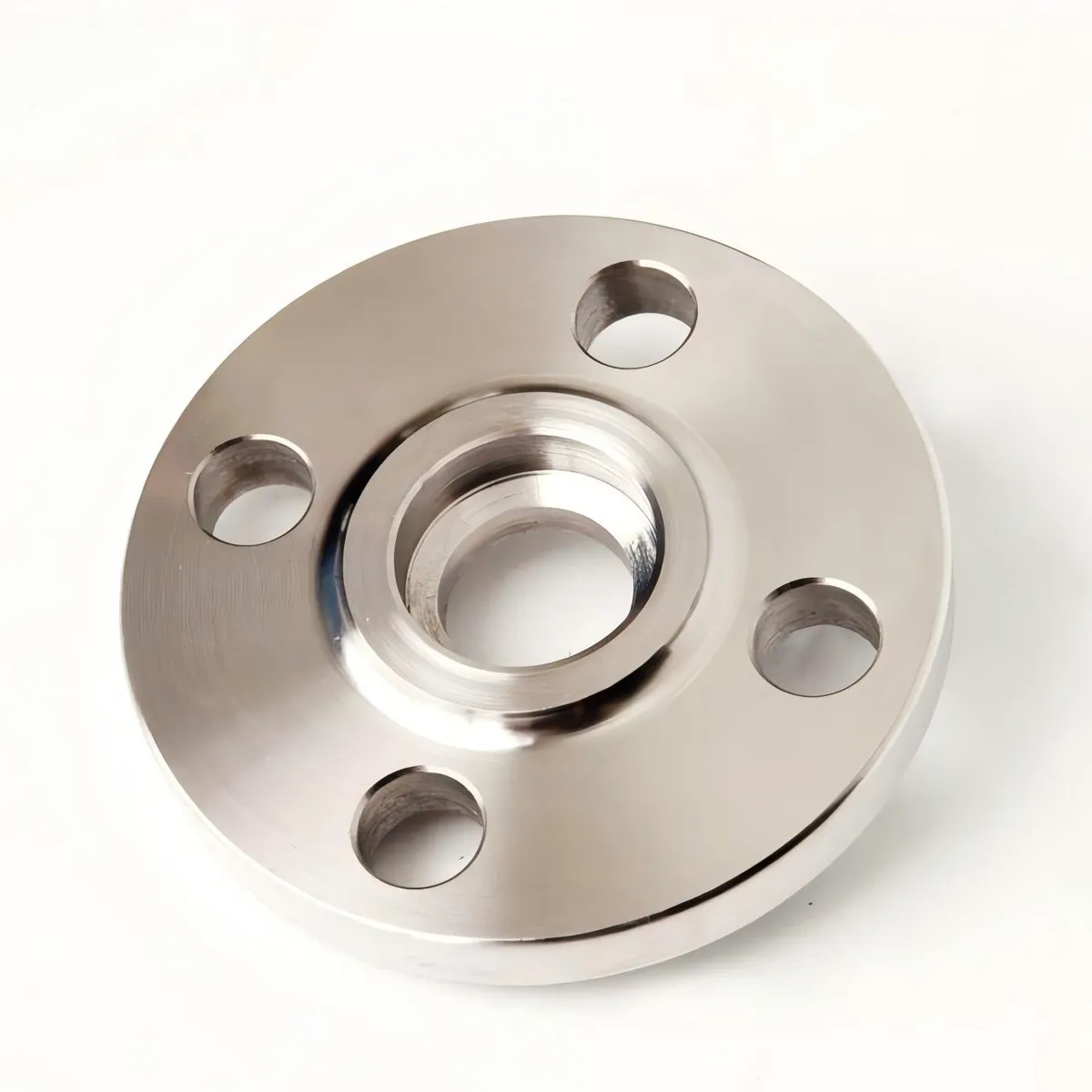
Following the initial forming, whether forged or cast, the socket flange undergoes precision machining. Modern CNC (Computer Numerical Control) machining centers are employed to achieve the exact dimensions, bore sizes, and face finishes specified by ANSI/ASME B16.5. This includes the crucial "socket" feature, which must have precise tolerances for optimal pipe fit and subsequent socket flange welding. Heat treatment is another vital step, especially for alloy steels and some stainless steels, to optimize properties such as hardness, ductility, and corrosion resistance. This might involve annealing, normalizing, quenching, and tempering processes. Throughout the manufacturing cycle, stringent quality control measures are implemented. This includes dimensional inspection, surface finish checks, non-destructive testing (NDT) such as ultrasonic testing (UT), magnetic particle inspection (MPI), liquid penetrant testing (LPT), and radiographic testing (RT) to detect any internal flaws or surface imperfections. Finally, hydrostatic testing might be performed on a batch basis to simulate operational pressures and ensure leak integrity. Adherence to ISO 9001 quality management systems is standard for reputable manufacturers, ensuring traceability and consistent product quality. The expected service life of a well-manufactured and correctly installed socket weld flange can extend for decades, minimizing maintenance and operational downtime in critical industrial applications.
The commitment to rigorous manufacturing protocols and comprehensive testing ensures that each socket weld flange delivers superior performance and reliability. This meticulous approach from raw material selection to final inspection is what differentiates high-quality components and contributes significantly to the safety and efficiency of industrial pipeline systems. The integration of advanced manufacturing technologies not only refines product quality but also enables greater customization and faster delivery to meet the evolving demands of various industries.
Application Scenarios and Distinct Advantages of Socket Weld Flanges
The robust design and superior sealing capabilities of the socket weld flange make it an invaluable component across a broad spectrum of demanding industrial applications. Its primary utility lies in pipeline systems where consistent flow and minimal leakage are non-negotiable, particularly for small bore piping (typically NPS 4 and below). Prominent industries utilizing these flanges include petrochemical processing, where they handle crude oil, refined products, and various chemicals under high pressure and corrosive conditions; power generation plants, for steam lines, condensate return systems, and cooling water circuits; oil and gas exploration and production, both onshore and offshore, for wellhead equipment and transport lines; and chemical manufacturing, for conveying aggressive acids, bases, and solvents. In municipal water supply and drainage systems, they offer a reliable connection for potable water lines and wastewater treatment facilities, where resistance to corrosion and long-term integrity are essential. The adaptability of the socket flange to diverse fluid types and operational parameters underscores its versatility.
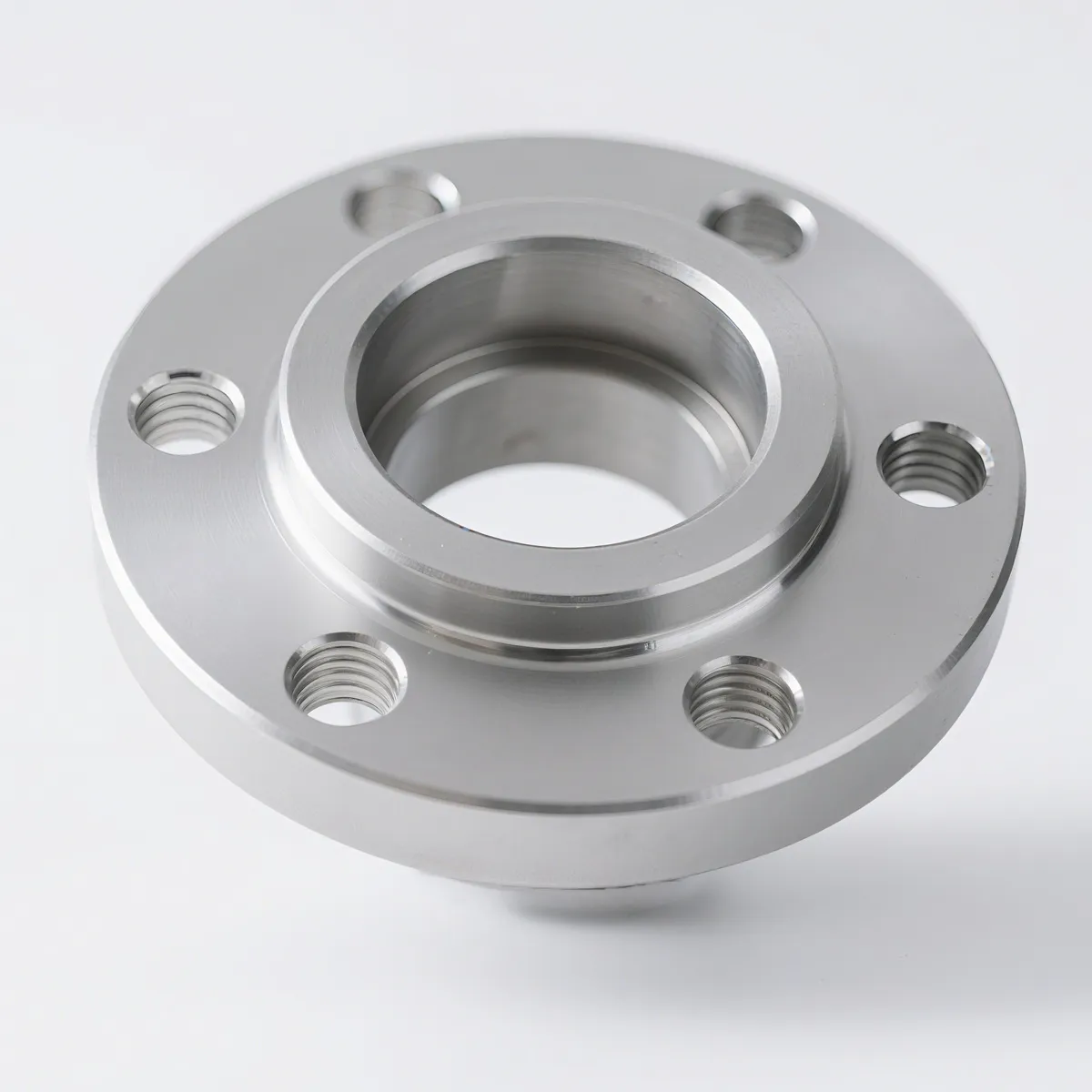
One of the foremost technical advantages of the socket weld flange is its superior leak prevention capability. The design creates a strong, internal-crevice-free joint (when correctly welded with a small gap before fillet welding), which significantly reduces the risk of process fluid leaks, a critical factor for safety and environmental compliance. This contrasts with threaded fittings that are more susceptible to spiral leakage paths over time. Furthermore, the socket flange welding process creates a robust, high-strength connection that provides excellent resistance to fatigue failure, making it suitable for systems experiencing vibration or pressure cycling. In corrosive environments, the smooth internal bore, when properly welded, prevents the accumulation of corrosive media in crevices, thereby extending the lifespan of the entire piping system. From an operational efficiency standpoint, the reduced likelihood of leaks translates into less product loss, lower maintenance costs, and improved energy efficiency by maintaining system pressure and flow. For example, in steam systems, a leak-free socket weld connection ensures maximum steam utilization, preventing energy wastage. The compact nature of the socket weld flange also allows for space-saving installations, which is particularly beneficial in congested industrial facilities where piping density is high.
Moreover, in scenarios requiring frequent disconnection and reconnection for maintenance or modification, while not as easily demountable as a slip-on or weld neck flange, the socket weld still offers advantages over butt-weld flanges for small diameters due to simpler alignment during installation. Its inherent structural integrity and resistance to distortion under thermal stress make it a preferred choice where long-term, reliable connections are paramount. These advantages collectively contribute to a safer, more efficient, and cost-effective operation of critical industrial processes, reaffirming the socket weld flange as a cornerstone of modern industrial piping.
Selecting the Right Manufacturer and Tailored Solutions for Socket Weld Flanges
Choosing the right manufacturer for socket weld flange components is as critical as selecting the flange itself. A reputable supplier should demonstrate a proven track record, adhere to international quality standards, and offer comprehensive technical support. Key criteria for evaluation include ISO 9001 certification, which signifies a robust quality management system; adherence to specific industry standards like API Q1 for oil and gas or PED (Pressure Equipment Directive) for European markets; and verifiable material certifications (MTCs) that trace raw materials back to their origin and confirm their chemical and mechanical properties. Manufacturers with extensive experience in the B2B sector often possess specialized knowledge of various industrial applications, enabling them to recommend the most suitable flange types and materials. Furthermore, a strong emphasis on research and development (R&D) indicates a manufacturer’s commitment to innovation, such as developing improved forging processes or advanced corrosion-resistant coatings, which can lead to enhanced product performance and longevity. Engaging with a manufacturer who understands the intricacies of socket flange welding procedures is also highly beneficial, as it ensures proper design for optimal weldability.
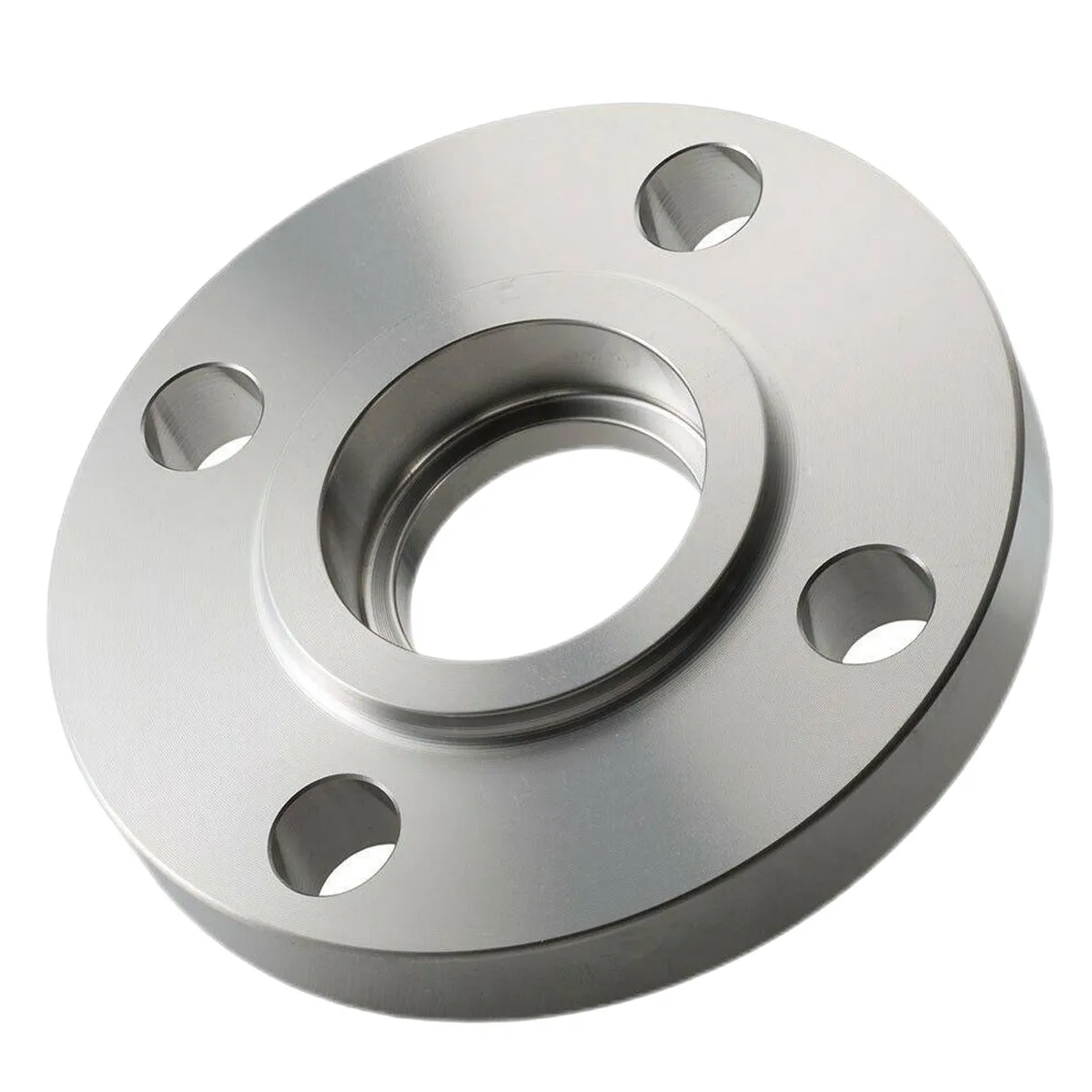
Beyond standard offerings, the ability to provide customized solutions is a hallmark of a premier socket weld flange manufacturer. Industrial projects often present unique challenges that off-the-shelf components cannot fully address. Custom engineering services might involve designing flanges for non-standard pipe sizes, specific pressure/temperature ratings, or incorporating specialized materials for extremely corrosive or abrasive media. This could include manufacturing duplex stainless steel flanges for offshore applications, Hastelloy flanges for highly acidic environments, or flanges with specific surface finishes for ultra-high purity systems. A dedicated technical team can collaborate with clients from the initial design phase through production, conducting finite element analysis (FEA) to predict performance under stress, providing detailed engineering drawings, and offering prototyping services. For example, a client requiring a socket flange for an aggressive chemical processing unit might need a material with exceptional resistance to stress corrosion cracking, which a custom manufacturer can source and process according to precise specifications. Such tailored solutions ensure optimal performance, reduce potential operational risks, and extend the lifespan of the entire system, ultimately offering significant cost savings over the long term by avoiding premature component failure and associated downtime.
When assessing manufacturers, it's also prudent to consider their production capacity, lead times, and logistical capabilities, especially for large-scale or international projects. A manufacturer with a robust supply chain and efficient production lines can ensure timely delivery, preventing costly project delays. Ultimately, partnering with a knowledgeable and adaptable socket weld flange supplier fosters a collaborative relationship that yields components perfectly matched to the most stringent project requirements, providing peace of mind and operational excellence.
Frequently Asked Questions (FAQ) and Commitment to Customer Trust
Establishing and maintaining client trust is paramount in the B2B industrial sector, particularly for critical components like the socket weld flange. Transparent communication regarding product specifications, manufacturing processes, and after-sales support builds confidence. Below are some frequently asked questions that clients often have, addressing common concerns and demonstrating our commitment to comprehensive customer support. Our goal is to provide clarity and assurance for every purchase. We believe that an informed client is a satisfied client, and we strive to address all inquiries with expertise and promptness, from initial consultation to post-delivery support. Our technical team is always ready to assist with specific application questions, material compatibility, and installation best practices for the socket flange, ensuring optimal performance in diverse industrial settings.
Q: What are the typical delivery times for socket weld flanges?
A: Delivery times for socket weld flange orders can vary based on quantity, material specification, and current production schedules. For standard items in common materials (e.g., A105 Carbon Steel or 304/316L Stainless Steel) and sizes (NPS 1/2" to 4"), we typically maintain a ready stock, allowing for dispatch within 3-5 business days. For larger quantities, specialized materials, or custom-engineered designs, lead times usually range from 2 to 4 weeks, depending on the complexity of the manufacturing process and any required certifications. We provide estimated delivery dates at the time of quotation and keep clients updated throughout the production and shipping process. Expedited options are also available for urgent projects, which can be discussed with our sales team to ensure your project timelines are met. Our efficient logistics network ensures timely and secure delivery globally, minimizing any potential disruptions to your operations.
Q: What kind of warranty do you offer on your socket weld flanges?
A: We stand behind the quality of our socket weld flange products with a comprehensive warranty against manufacturing defects and material failures under normal operating conditions. Our standard warranty period is 12 to 24 months from the date of delivery, or 18 months from installation, whichever comes first, ensuring peace of mind for our clients. This warranty covers any issues arising from our manufacturing process or the quality of materials used, provided the flanges are installed, operated, and maintained according to industry standards and our recommendations. In the unlikely event of a defect, we commit to prompt inspection, repair, or replacement of the product, minimizing any disruption to your operations. Our commitment to quality is reinforced by our ISO-certified manufacturing processes and rigorous testing protocols, ensuring that every socket weld flange meets or exceeds relevant industry standards.
Q: Do you offer technical support and after-sales service?
A: Absolutely. Our commitment to our clients extends far beyond the point of sale. We offer dedicated technical support to assist with product selection, installation guidance, and troubleshooting any operational queries related to our socket weld flange products. Our team of experienced engineers and technical specialists is available to provide expert advice, ensuring that you optimize the performance and longevity of your piping systems. We also provide comprehensive after-sales service, including assistance with spare parts, maintenance recommendations, and continuous support for the lifespan of our products. We pride ourselves on building long-term partnerships, reflected in testimonials from numerous satisfied clients in the petrochemical, power, and marine industries who commend our responsiveness and problem-solving capabilities. Our service cases range from assisting with complex material compatibility challenges to providing on-site consultation for large-scale infrastructure projects involving extensive socket flange welding. Your operational success is our priority.
Conclusion: The Enduring Value of High-Quality Socket Weld Flanges
In summation, the socket weld flange remains an indispensable component in myriad industrial piping applications, celebrated for its inherent strength, superior leak integrity, and adaptability to high-pressure, high-temperature, and corrosive environments. Its meticulous manufacturing process, encompassing precision forging or casting, advanced CNC machining, and rigorous quality control measures, ensures exceptional durability and long service life. The distinct advantages, such as excellent fatigue resistance, minimal risk of internal crevice corrosion, and compactness, position it as a preferred choice for critical small-bore piping systems across sectors including petrochemicals, power generation, and chemical processing. As industries continue to evolve, demanding greater reliability and efficiency, the role of a well-engineered socket flange will only grow in significance. Partnering with a manufacturer that prioritizes quality, adheres to international standards, offers customization capabilities, and provides robust technical and after-sales support is paramount for project success and long-term operational integrity. The investment in high-quality socket weld flange products directly translates into enhanced safety, reduced maintenance costs, and optimized system performance, solidifying its status as a cornerstone in modern industrial infrastructure.
Authoritative References:
- American Society of Mechanical Engineers (ASME) B16.5, Pipe Flanges and Flanged Fittings.
- American Society for Testing and Materials (ASTM) Standards for Steel Flanges.
- International Organization for Standardization (ISO) 9001: Quality Management Systems – Requirements.
- Welding Handbook, Volume 2: Welding Processes, American Welding Society (AWS).
- Perry's Chemical Engineers' Handbook, Section 10: Fluid and Particle Dynamics, Process Piping Design.
-
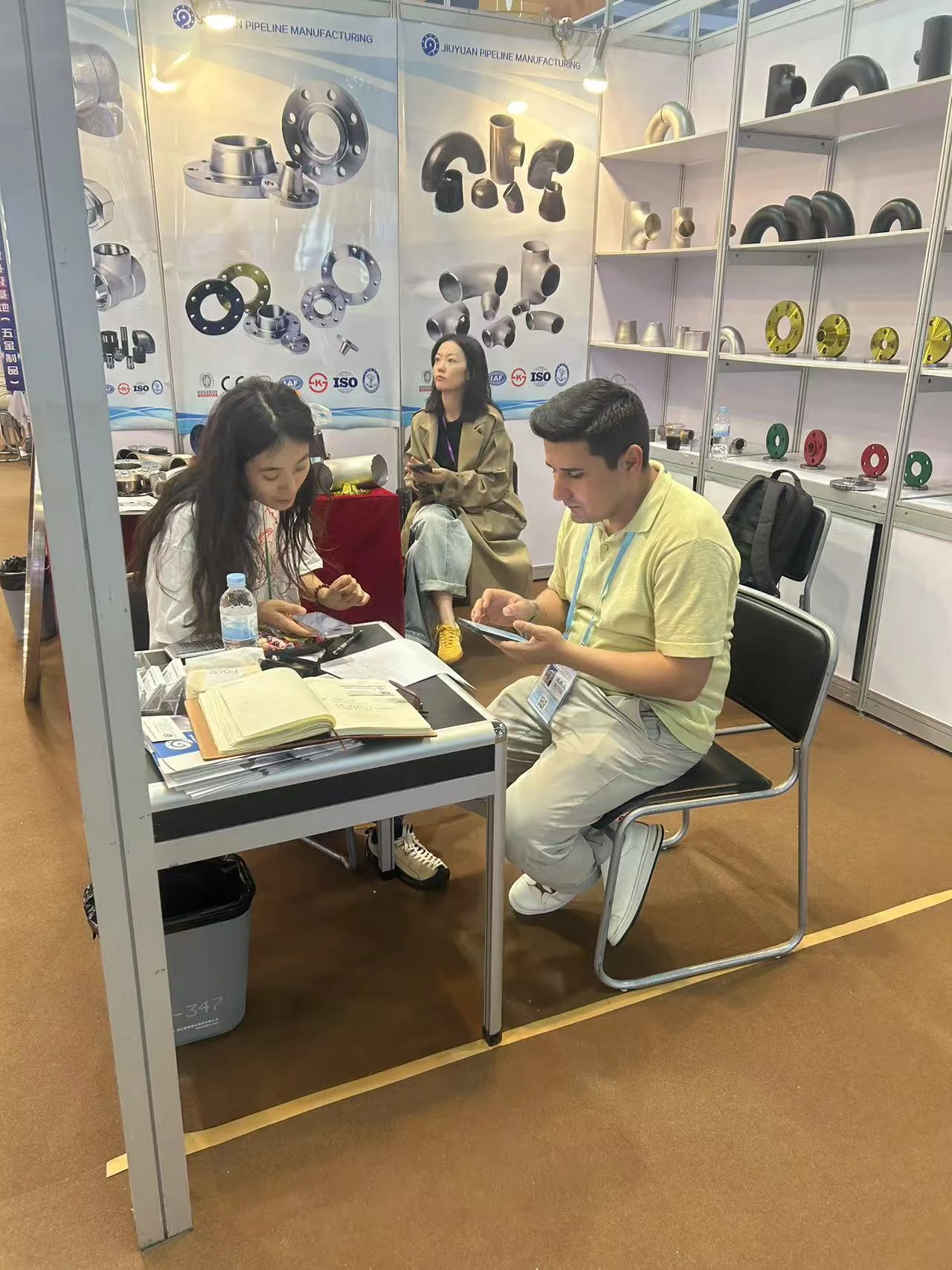 Apr. 28, 2025
Apr. 28, 2025From April 15 to April 19, 2025, our company proudly participated in the renowned Canton Fair held in Guangzhou, China.
-
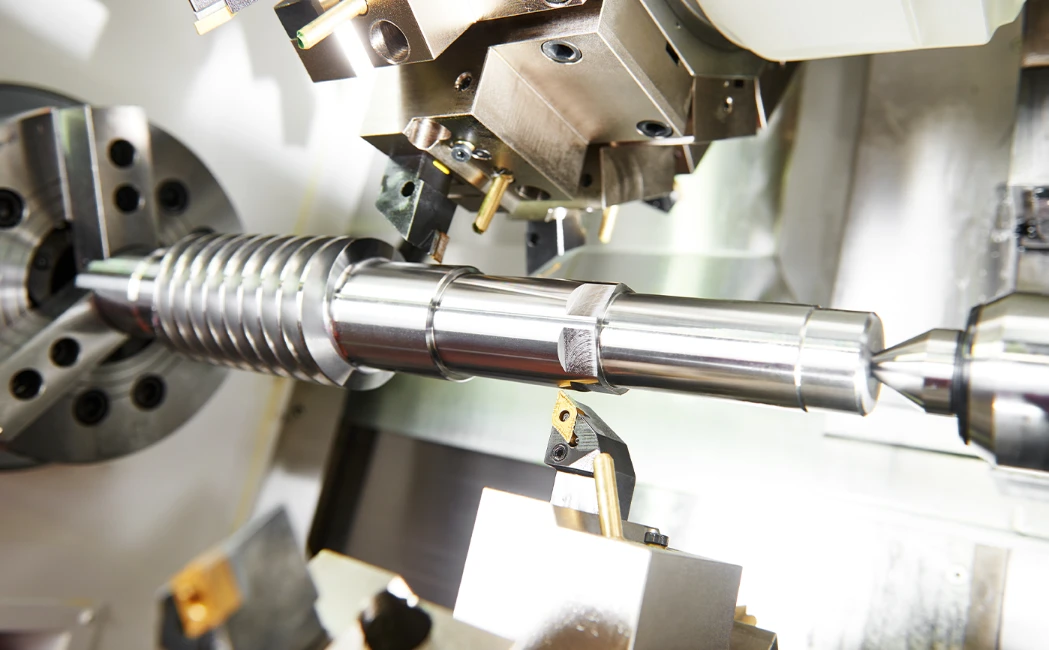 Apr. 24, 2025
Apr. 24, 2025Jiuyuan Pipeline is excited to announce its participation in the upcoming 2025 Wire / Tube with Metal & Steel KSA exhibition, scheduled from May 5th to May 7th, 2025.
If you are interested in our products, you can choose to leave your information here, and we will be in touch with you shortly.
